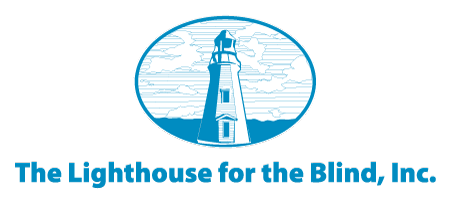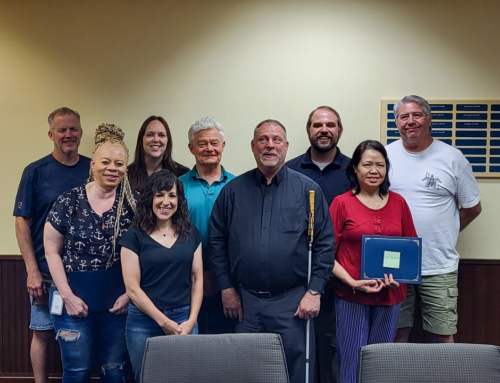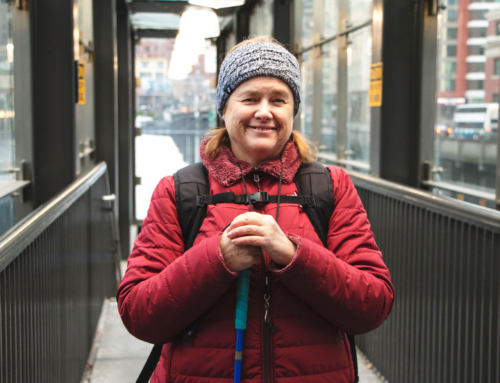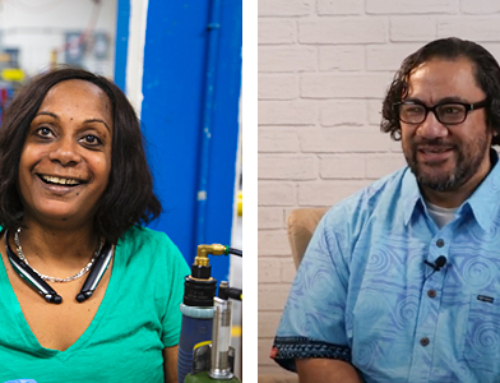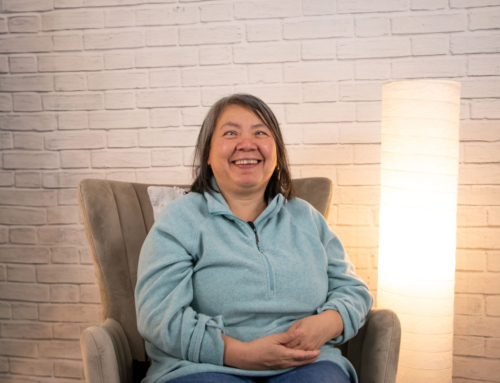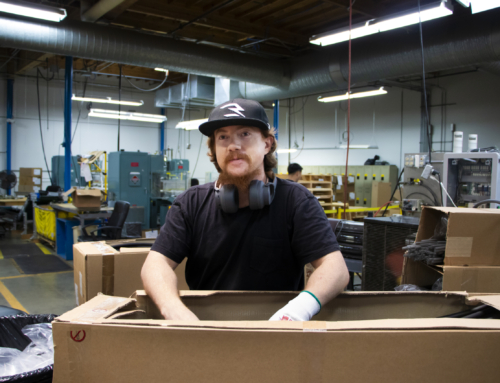Joey Graff, Training and Development Coordinator at The Lighthouse for the Blind, Inc., began her relationship with the Lighthouse nearly 20 years ago. Her first encounter was when she joined her mentor, Ellie Savidge, at our Annual Deaf-Blind Retreat as a volunteer interpreter in 1993. Joey says, ”It was exhausting and fun. I realized that people can do anything if they have the supports that they need.” After that first experience Joey went on to contract with the Lighthouse as an American Sign Language (ASL) Interpreter for ten years through our Interpreting Services Department. She has been in her current position as a coordinator for five years. She enjoys her position as Training and Development Coordinator, and although she still provides interpreting on occasion, she says, “I can support people in a different way. I get to be supportive of people, interpreters, and people who are Deaf-Blind in any interaction and encourage that we can all do this.”
Joey admits that her job demands that she meet people at their own comfort level. Joey went through her own process of transition and acceptance. “I grew up hard of hearing and I didn’t get hearing aids until my daughter started talking,” Joey said. “Before when she was signing I thought: I understand everything she’s saying and I work around Deaf people all the time, so I don’t need hearing aids. Then she started talking and I realized it was hard on her to feel like I wasn’t able to understand her. I admitted to myself that I needed to go again and get my hearing checked and look at hearing aids. It just forced me to do it. I can imagine that it is similar for people going through something similar with vision loss.”
Joey recounts that her interpreter training program didn’t provide opportunities to work with people who are Deaf-Blind. When she began working towards interpreter certification and sought out a mentorship program, the only structured program at that time in Seattle was offered through the Deaf-Blind Service Center (DBSC). Joey recalls, “It was completely eye-opening. It was a great experience and I learned a lot. I learned how visual information can be empowering and how easy it is to be overwhelmed by the amount of information. For example, you hear things and relay that information but what you see is information that should be relayed, too. It can be overwhelming because that’s a lot of information to filter through. It is a lot of power too, because you have to figure out what is important. What’s important to me may not be what’s important to the person I’m interpreting for. So the key is to give the person who is Deaf-Blind the power of decision.”
Joey thinks that the most exciting development with the Deaf-Blind Retreat over the years is how it’s becoming more and more lead by people who are Deaf-Blind. Creating a process and environment where people who are Deaf-Blind make the choices about where they want to go and what they want to do. Joey says, “It’s great to see that the people who are working as directors and coordinators are Deaf-Blind. People who are Deaf-Blind are mentoring interpreters about how to work with the Deaf-Blind community.”
